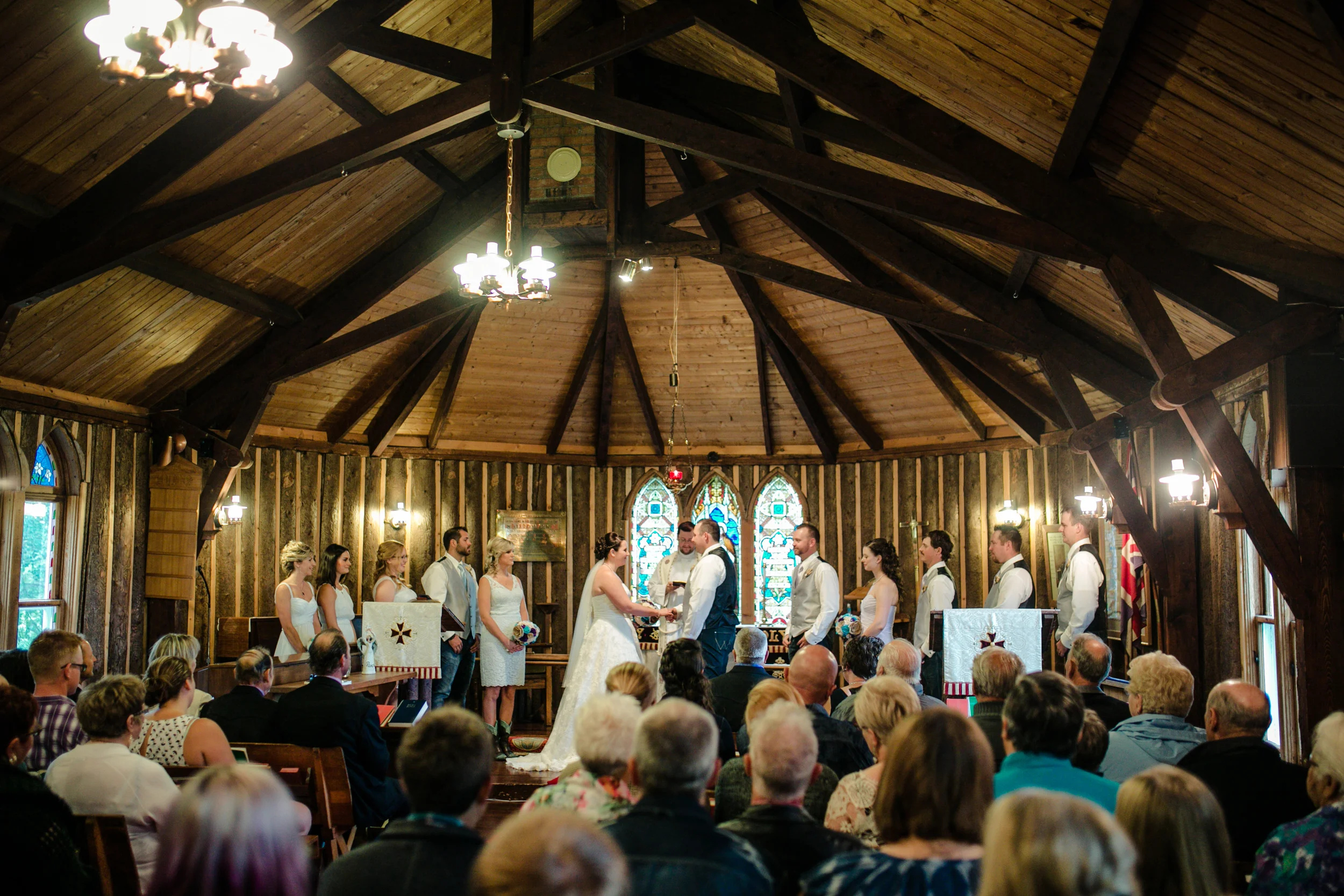Marriage is a public service of the Church. It should therefore be solemnized in the body of the church (except for sufficient cause to the contrary) in the presence of the friends and neighbours of those who come to be married and of the congregation of the Church.
The requirements of the civil laws of the province or territory must be met. It shall be the duty of those who intend to marry to give notice to the minister at least sixty days before the day proposed for the wedding. The minister may at his/her discretion waive this requirement for sufficient cause, in which case the bishop of the diocese shall be notified in writing, with a statement of the cause for the decision.
It shall be the duty of the minister, when application is made for a marriage to be solemnized, to enquire whether there is any impediment to the marriage and its solemnization. It shall also be the duty of the minister to provide or secure appropriate means of education, so that all who seek marriage in the Church may attain a Christian understanding of its purpose and may be encouraged to give effect, with God’s help, to the vows which they are preparing to make.
No minister shall solemnize the marriage of two persons neither of whom has been baptized. If two persons, one of whom has not been baptized, desire to be married, the matter shall be referred to the bishop of the diocese; the bishop’s order and direction shall be followed. Any person knowing of a lawful reason why a marriage may not be solemnized should inform the officiating minister before the service.
Concerning the service
Every marriage shall be solemnized in the presence of at least two witnesses in addition to the officiating minister.
The Incumbent Priest shall be responsible for the conduct of the marriage service. Hymns, anthems, and readings at the service shall be those only which may be found in Holy Scripture, in the Book of Common Prayer, the Hymn Book, or in texts approved by ecclesiastical authority. Relatives or members of the wedding party may be invited to read the scripture lessons and lead the intercessions.
Where both bride and bridegroom are entitled to receive communion, it is desirable that the form of service in which the marriage rite is incorporated in the celebration of the eucharist be used.
A proper preface for Marriage has been provided for Eucharistic Prayer 3. One of the other eucharistic prayers may be used, if desired.
Variations in the text may be made by the couple with the consent of the minister, according to diocesan policy, but no alterations may be made in the declarations to be made by the parties or in the marriage vows themselves.
Suitable points in the service for hymns or anthems are at the opening, before or after the sermon, after the couple have been declared to be husband and wife, during or after the communion, or at the close of the service.


